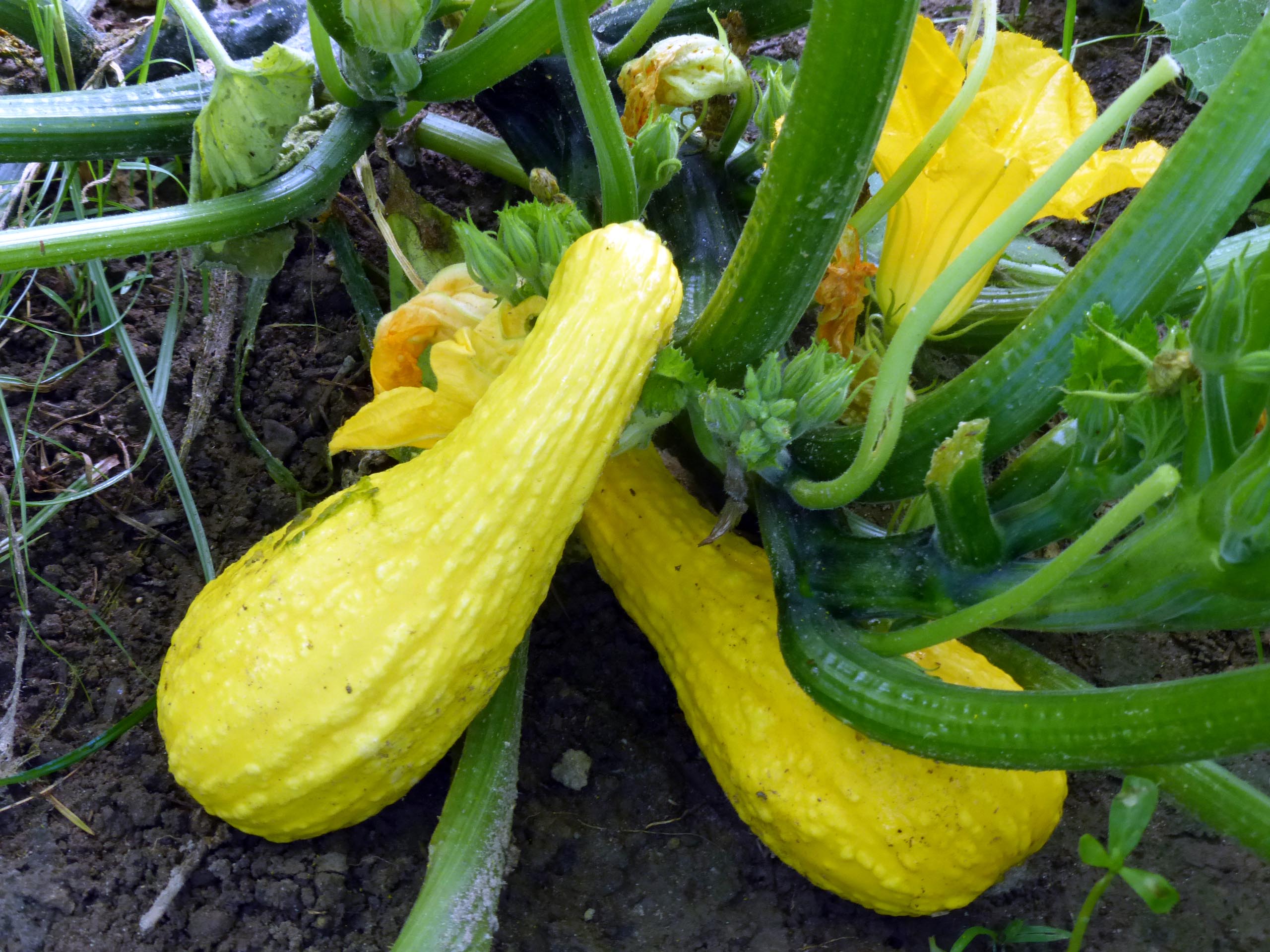Yellow Squash Beetles

Yellow squash beetles
Keep your gardens clean of all old cucurbit vines and crop or leaf debris. With winter hiding places removed, squash bugs rarely survive the cold, so it cuts down on cucurbit invasions the next season. Tilling the soil well after harvest also goes a long way toward eliminating these pests.
How do you get rid of squash lady beetles?
There are several types of plants that repel squash beetles because of their smells or their natural oils, including catnip, marigold, radish, petunias, and nasturtiums. These plants should provide an organic way to deter them from consuming their normal diet without the use of dangerous chemicals.
Are squash beetles harmful?
They suck the sap out of leaves with their piercing-sucking mouthparts. Their feeding causes yellow spots that eventually turn brown. The feeding also affects the flow of water and nutrients, and, when severe, can cause wilting. Unlike cucumber beetles, squash bugs do not carry diseases.
Can a squash plant recover from squash bugs?
Both adults and nymphs suck nutrients from leaves, causing wilting. Seedlings, newly transplanting plants, and flowering plants are the most vulnerable. Unless severely damaged, plants usually recover once the squash bug population declines.
How do I permanently get rid of squash bugs?
The best and most eco-friendly way to kill squash bugs is by hand (or foot). Drop them immediately into a jar or similar container filled with soapy water. They cannot escape and will drown. You can scrape squash bug eggs from the underside of leaves and dispose of them or drop them into the same soapy water.
Do marigolds repel squash beetles?
MARIGOLDS- Repel Mexican bean beetles, aphids, cabbage moths, potato bugs, squash bugs, nematodes (if dug into soil), and maggots.
Do coffee grounds keep squash bugs away?
Adding coffee grounds to boiled water will help to deter squash bugs; spray the cooled solution on vegetation or spread coffee grounds around plants to discourage squash bugs. Because of their high caffeine and diterpene content, fresh and unused coffee grounds are the most effective way to deter pests.
What kills squash bugs naturally?
Diatomaceous Earth (DE) DE is very sharp on a microscopic level and it dries out and kills many bugs that come into contact with it. Put DE directly on the eggs and around the stems of your plants to help keep squash bugs away.
What plants do squash beetles hate?
Companion planting is also worth a try, using repellent plants that deter the squash bug. They include catnip, tansy, radishes, nasturtiums, marigolds, bee balm and mint.
How do farmers deal with squash bugs?
The best method for control is prevention through sanitation. Remove old cucurbit plants after harvest. Keep the garden free from rubbish and debris that can provide overwintering sites for squash bugs. At the end of the gardening season, compost all vegetation or thoroughly till it under.
What is the best spray for squash bugs?
The most effective products for adults were cyhalothrin (Spectracide Triazicide) and cyfluthrin (BioAdvanced Vegetable & Garden Insect Spray). It is especially critical to reduce the overwintering population of squash bugs by working the soil and/or removing foliage and fruit immediately after harvest.
What does squash beetle damage look like?
Squash bug damage appears as little yellow lesions on leaves, stems and vines. Those spots will turn darker and grow in time. The edges of the leaves start to get crispy, especially as the days get hotter and the plants are stressed.
Should I squish squash bugs?
Sounds like you've got an outbreak of squash bugs. These little critters can really be tough to control. One way to reduce their numbers is to lay down boards around the plants, then flip the boards over every few days and squish the bugs you'll find hiding on the undersides.
Will cayenne pepper get rid of squash bugs?
So, it's us against them and this year's “Squash Bug Warrior” is Rhonda Fox, who concocted a killer spray of natural products that does the job. She uses garlic juice, onion juice, water and cayenne pepper. It kills the nymphs and it definitely gets to the adults too.
Do squash bugs come back every year?
Squash bugs life cycle In colder climates, these bugs have one generation per year. In warmer climates there will be 2 or 3 generations. The females live over the winter in plant debris and then come out in the spring to lay their reddish browns eggs on the leaves of cucumbers, squash, melons and pumpkins.
Does neem oil work on squash beetles?
Neem oil, a natural pesticide, has been shown to effectively control squash bugs. Spray it on all leaf and stem surfaces according to label directions.
What kills squash bugs and cucumber beetles?
Pinero recommends Inspecting the hubbards weekly for signs of cucumber beetles or squash bugs and targeting your insect control just to these plants. Spray the hubbards with Eight (permethrin), bifenthrin, neem or spinosad products when insects appear.
What eats squash bugs?
Natural Predators for Squash Bugs Adult Tachinid flies lay eggs on the squash bugs, and the larvae consume squash bugs as food. Adult flies feed only on nectar and pollen, so they won't harm your vegetable plants. Ground beetles and damsel flies will also prey upon squash bug eggs if they can find them.
Does garlic get rid of squash bugs?
Try Companion Planting Companion planting can be useful in repelling squash bugs. Try planting nasturtium, catnip, garlic, onions, radishes, marigolds, calendula, and tansy around your plants that are commonly affected by squash bugs.
Do squash bugs eat cucumbers?
Squash bugs feed on summer squash, winter squash, pumpkins, melons and cucumber, all of which are cucurbit varieties. However, some cultivars are more susceptible than others to squash bug feeding and damage.













Komentar
Posting Komentar